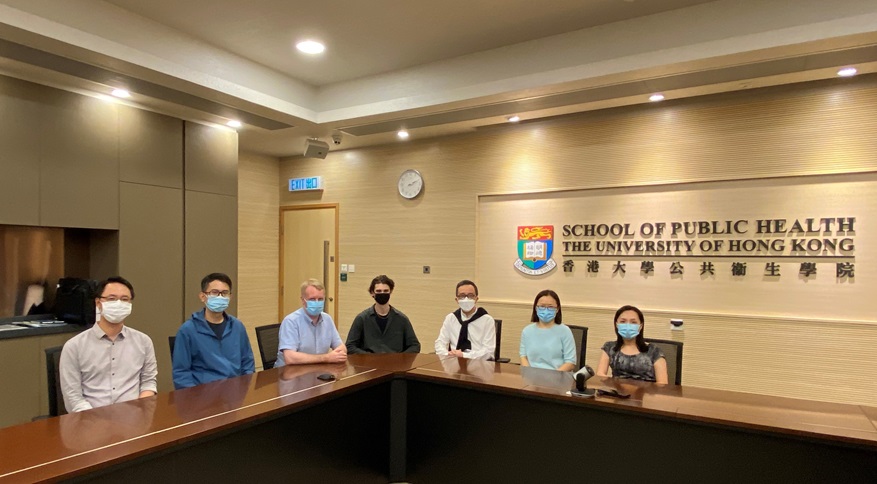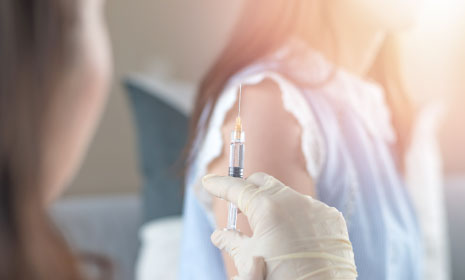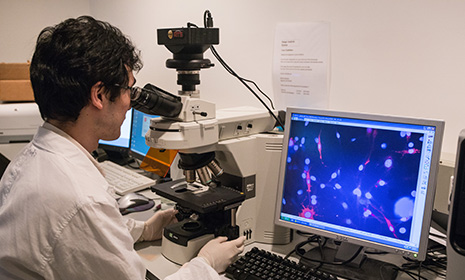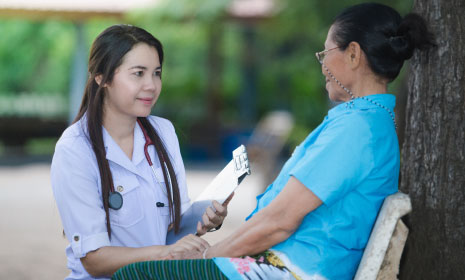Press Release: HKUMed researchers found local superspreading featured predominantly in overall SARS-CoV-2 transmission during the first and second wave in Hong Kong: implications for continuing social restriction
HKUMed researchers at the WHO Collaborating Centre for Infectious Disease Epidemiology and Control, School of Public Health, LKS Faculty of Medicine at The University of Hong Kong (HKUMed) and collaborators from Institut Pasteur, Paris, France found that during the first wave and second wave (January – April 2020) of COVID-19 in Hong Kong, superspreading events overwhelmingly contributed to the total transmission of SARS-CoV-2 in the city. The findings are now published in Nature Medicine. [link to the publication]
The research team used contact tracing data to identify all clusters of COVID-19 in Hong Kong and estimated the degree of superspreading and associated risk factors. They found that superspreading was particularly associated with large social gatherings, and accounted for the majority of all SARS-CoV-2 transmission within the city. Beyond superspreading, the research team also found that actively placing all contacts of a confirmed case in quarantine was highly effective in breaking chains of local transmission. The study concluded that preventing superspreading events, in conjunction with rapid contact tracing and quarantine, could effectively suppress local outbreaks until a vaccine becomes available.
Superspreading is a common feature of past coronaviruses epidemics, and was seen during SARS in 2003 in Hong Kong and elsewhere. Knowing this, the research team set out to understand if and how superspreading might be involved in the transmission of SARS-CoV-2. Overall, their findings indicated that like SARS, there was substantial potential for SARS-CoV-2 superspreading, and estimated that 19% of SARS-CoV-2 infections in Hong Kong were responsible for 80% of all transmission events. Superspreading events were mostly observed in social settings such as bars, restaurants, weddings and temples, rather than in households or offices.
This study suggested that reducing the occurrence of superspreading events through limitations of gatherings in social settings can have a disproportionate effect on reducing SARS-CoV-2 transmission. These results have important policy implications concerning the approach to COVID-19 suppression in Hong Kong and elsewhere in the world.
About the research team
The research was conducted by: Dr Dillon C. Adam, Post-doctoral Researcher; Dr Peng Wu, Assistant Professor; Dr Jessica Wong Yuen-ting, Research Officer; Dr Eric Lau Ho-yin, Scientific Officer; Dr Tim Tsang Kam-lun, Research Assistant Professor, School of Public Health, HKUMed; Professor Gabriel Leung, Dean of Medicine, Helen and Francis Zimmern Professor in Population Health, Chair Professor of Public Health Medicine, HKUMed, and Founding Director of the WHO Collaborating Centre for Infectious Disease Epidemiology and Control; Professor Benjamin Cowling, Division Head of Epidemiology and Biostatistics, School of Public Health, HKUMed, and Co-Director of the WHO Collaborating Centre for Infectious Disease Epidemiology and Control; and Dr Simon Cauchemez, Head of Structure of Mathematical Modelling of Infectious Diseases Unit, Institut Pasteur, France
This project was supported by the Health and Medical Research Fund, Food and Health Bureau, (grant no. COVID190118), and the Theme-based Research Scheme [Project No. T11-712/19-N] of the Research Grants Council, Government of the Hong Kong Special Administrative Region.
About the WHO Collaborating Centre for Infectious Disease Epidemiology and Control, School of Public Health, HKUMed
The School of Public Health, LKS Faculty of Medicine of The University of Hong Kong (HKUSPH) has a long and distinguished history in public health education and high impact research. With world leading research in infectious diseases as well as on non-communicable diseases of both local and global importance, the School has made significant contributions through its research and advocacy to improve the health of populations and individuals, both locally and globally. The School is a leading research and teaching hub in public health on influenza and other emerging viruses, control of non-communicable and infectious diseases, tobacco control, air pollution, psycho-oncology, behavioural sciences, exercise science, life-course epidemiology, and health economics, health services planning and management. Work done by HKUSPH researchers has informed international (e.g. the World Health Organization and the Food and Agriculture Organization), national and local public health policies.
The School of Public Health hosts the WHO Collaborating Centre (WHO CC) for Infectious Disease Epidemiology and Control. With a view to protecting the public's health in Hong Kong and across the region, the WHO CC aims to coordinating research on the control and prevention of infectious diseases and providing local and regional education and training in infectious disease epidemiology and control. Members of the WHO CC are involved in the response to COVID-19 and conducted a range of scientific research projects. The team has created a website to share the latest scientific findings and the implications for evidence-based public health policies on the ongoing COVID-19 outbreak [link to website: https://covid19.sph.hku.hk/].
For the latest update from HKUMed on COVID-19:
http://www.med.hku.hk/en/covid-19

Members of the research team from School of Public Health, HKUMed include: (from left to right) Dr Eric Lau Ho-yin, Scientific Officer; Dr Tim Tsang Kam-lun, Research Assistant Professor; Professor Benjamin Cowling, Division Head of Epidemiology and Biostatistics and Co-Director of the WHO Collaborating Centre for Infectious Disease Epidemiology and Control; Dr Dillon C. Adam, Post-doctoral Researcher; Professor Gabriel Leung, Dean of Medicine, Helen and Francis Zimmern Professor in Population Health, Chair Professor of Public Health Medicine, HKUMed, and Founding Director of the WHO Collaborating Centre for Infectious Disease Epidemiology and Control; Dr Peng Wu, Assistant Professor; and Dr Jessica Wong Yuen-ting, Research Officer.








.png)
